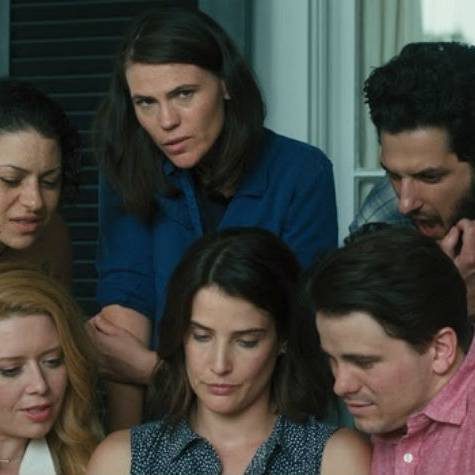 It’s been quite a year for the global LGBTQ+ community – no wonder it’s been dubbed #TwentyGayTeen on social media –and this is especially true in the media portrayals of queer people.
It’s been quite a year for the global LGBTQ+ community – no wonder it’s been dubbed #TwentyGayTeen on social media –and this is especially true in the media portrayals of queer people.
Positive media portrayals of queer people are incredibly important to both the LGBTQ+ community and society as a whole, which is why I wanted to spend a little time, looking at the best movies focusing on LGBTQ+ women and nonbinary people that came out in 2018 and why they are important.
Disobedience
Ronit (Rachel Weisz ) returns from New York to London for her father’s funeral, but it soon becomes clear that she doesn’t fit in with the Orthodox Jewish Community there. Whilst packing up her old room at her father’s house, Ronit is kissed by her old friend (and old flame) Esti (Rachel McAdams), who is now married to a man, and the two begin a brief affair.
Why it’s important for queer women to watch:
The relationship between the two female leads is complicated by religion and tradition, but it has a powerful message about forging your own path and embracing yourself.
A Kid Like Jake
Jake (Leo James Davis) is a “gender-expansive” child who is encouraged to explore non-binary inclinations by supportive parents Greg (Jim Parsons) and Alex (Clare Danes), who believe Jake to be a trans girl or nonbinary.
Why it’s important for queer women to watch:
This is a moving exploration of how parents of trans and nonbinary kids can help to embrace their child’s gender identity, without labelling them prematurely.
Rafiki
Tomboy Kena (Samantha Mugatsia) doesn’t have many female friends, so her mother is pleased when she starts hanging out with Zika (Sheila Munyiva). Romance blossoms between the two girls, despite homosexuality, being illegal in Kenya, but it takes a frightening turn when they are caught kissing and chased by an angry mob.
Why it’s important for queer women to watch:
It’s a moving story about love being stronger than hate, even in countries where your love is a crime, but it had possibly a greater impact away from the silver screen. Kenya’s homophobic laws meant that Rafiki was banned from release there until rumours began to circulate about a possible Oscar nod and Kenya mysteriously released it to selected cinemas, proving that homophobes are hypocrites.
Can You Ever Forgive Me?
Following the failure of her Estee Lauder biography, Lee (Melissa McCarthy) is trying to revamp her writing career by forging (and stealing) letters from dead authors and playwrights, whilst battling alcoholism and potential financial ruin. But just how long can she survive like this?
Why it’s important for queer women to watch:
One of my friends described this movie as “proof that [LGBTQ+ people] don’t have to be nice to be in movies”. That’s true. We deserve to see a diverse range of queer people on screen and characters don’t have to be holier-than-thou those to be compelling – there are plenty of deeply flawed straight characters in movies. However, I think Lee redeems herself in a darkly comic way by the end of the movie.
The Miseducation of Cameron Post
In 1993, Cameron (Chloe Grace Moretz) is caught having sex with prom queen Coley (Quinn Shepard) in her car by her aunt and is packed off to gay conversion therapy before you can say “awkward”. Abandoned by her aunt and her girlfriend, Cameron makes friends with fellow “disciples” Jane and Adam, who help her to navigate this hellhole.
Why it’s important for queer women to watch:
Directed by Desiree Akhavan, writer and star of 2018’s “The Bisexual”, this film shows how LGBTQ+ people are often forced to form their own families after rejection and why it’s important to stand up for yourself, even in the face of overwhelming disapproval.
The Lez Bomb
Closeted lesbian Lauren (Jenna Laurenzo) brings her girlfriend Hailey (Caitlin Mehner) home to her dysfunctional family for Thanksgiving, but when her male roommate shows up unexpectedly, Lauren’s mum assumes that he’s Lauren’s boyfriend and comedy ensues.
Why it’s important for queer women to watch:
Coming out is often hard, especially if you choose to do it in front of the whole family during a major holiday, but it’s often worth it in order to live your truth. And it’s always good for us to see a coming-out process that goes well.
Well, that’s it from me on the best of 2018’s queer cinema, but now I hear from you. What films have been your favorite of the year? Share your picks in the comments below.


